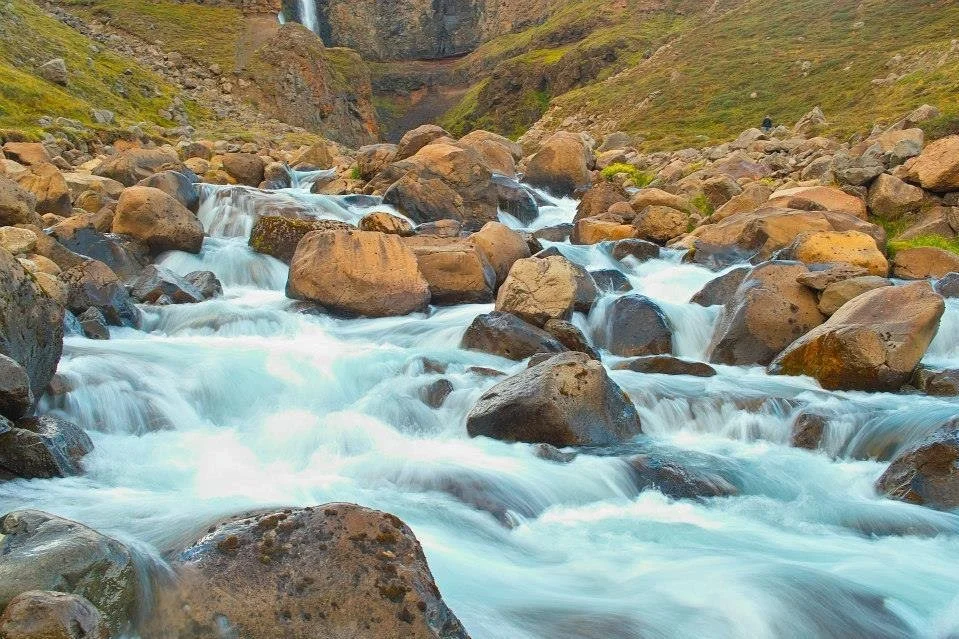creek song …
the stories
only rocks know
For me, to use exaggeration in the writing of haiku is to employ a technique of forced perspective to help poetically capture what we — as haiku poets — refer to as the ‘haiku moment’, using hyberbolic imagery and various other poetic devices to represent, in heightened terms, that instance of awe which we wish to share with our readers. If Ben Okri is right to suggest that “haiku combines quantum essence with cultural force,”[1] it is my belief that exaggeration consequently offers us a means to access and represent more fully the ‘quantum mechanics’ of the haiku moment, which is to say, in hyperbolic terms, to reveal and illustrate poetically the complexities of an ‘atomic’ universe concealed in the (natural) world around us.
In Angela Terry’s nine syllable verse, ‘creek song’, the sound of what is arguably one of the smallest classifications of moving water — the ‘creek’ — is exaggerated, becoming an access point into the ‘quantum’, secret world of nature and the ’stories’ that are communicated in a language that ‘only rocks know’. Though, perhaps, some readers of this poem might take issue with its arguably animistic character (finding fault in the idea that creeks and rocks communicate in a language all their own), I believe such a line of critique ignores the fact that the natural world does indeed have a history, one which — as the French historian Fernand Braudel tells us — takes shape over the course of “la longue durée,” and corresponds with geographic, ecological, and climatological movements that take place over “long, even very long, duration[s].”[2] In writing about the ‘story’ of the ‘creek’, which Terry suggests is communicated in ‘song’, she is therefore drawing attention to a history known only to the rocks that have been cut, shaped, and polished by the constant flow of water over, under, between, and through them. Terry’s haiku, then, is a poem not simply about the gentle sounds of the creek but the entire natural history of that place, as well as the manifold forces of nature that are effectively communicated in the ‘song’ of this stream of water as it moves through both time and space.
In short, I selected ‘creek song’ because I believe its use of an ‘exaggerated’ perspective offers an intriguing example of how to represent the macro in the micro, or to capture more fully the experience of the infinite that is contained within the ‘song[s]’ of nature playing constantly around us. While we often struggle to hear and understand these ‘stories’, if we can pause and listen closely, we might, at least, begin to appreciate the historic character and not-so-fleeting beauty of each passing moment.
— Christopher Peys, Poetry Pea (Spring 2021)
[1] Ben Okri, The Comic Destiny (London: Head of Zeus, 2009), ix.
[2] Fernand Braudel and Immanuel Wallerstein (trans.), “History and the Social Sciences: The Longue Durée,” Review 32, no. 2 (2009), 179.
